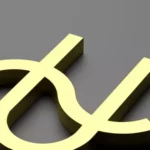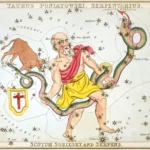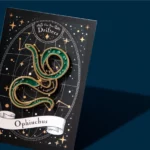Imagine thinking you were born under a particular zodiac sign only to discover that there’s another sign that could potentially rock the astrological world. This is the case with Ophiuchus, the 13th zodiac sign that has sparked controversy and ignited debates among astrologers and enthusiasts alike. From the mythology behind Ophiuchus to its astrological significance, there is much to uncover about this mysterious constellation and its potential impact on our understanding of the zodiac. In this article, we will delve deep into the controversy surrounding Ophiuchus, exploring the arguments for and against its inclusion, dispelling misconceptions, and pondering the future of mainstream astrology.
Contents
- What is Ophiuchus?
- The 13th Zodiac Sign Controversy
- Arguments For and Against Ophiuchus
- Misconceptions and Clarifications
- Conclusion
-
Frequently Asked Questions
- What is the origin of the name “Ophiuchus”?
- Is Ophiuchus considered an official zodiac sign?
- Does Ophiuchus have specific personality traits assigned to it?
- What are the romantic matches for Ophiuchus individuals?
- How does Ophiuchus impact chart interpretation?
- Why is Ophiuchus not included in mainstream astrology?
- Will Ophiuchus change the dates of other zodiac signs?
- Is Ophiuchus gaining acceptance among astrologers?
- Can Ophiuchus be integrated into mainstream astrology?
- Is there scientific evidence supporting Ophiuchus’ influence?
- References
-
Frequently Asked Questions
- 1. What is the significance of Ophiuchus in astrology?
- 2. What is the mythology behind Ophiuchus?
- 3. How was Ophiuchus discovered?
- 4. How does Ophiuchus align with the Sidereal Zodiac?
- 5. Why is there controversy surrounding the inclusion of Ophiuchus as a zodiac sign?
- 6. Does the inclusion of Ophiuchus increase the accuracy of astrology?
- 7. How does Ophiuchus impact chart interpretation?
- 8. Why do some astrologers adhere strictly to the traditional zodiac without including Ophiuchus?
- 9. Is Ophiuchus considered a new zodiac sign?
- 10. Will the inclusion of Ophiuchus change astrological dates?
- References
- Read More
What is Ophiuchus?
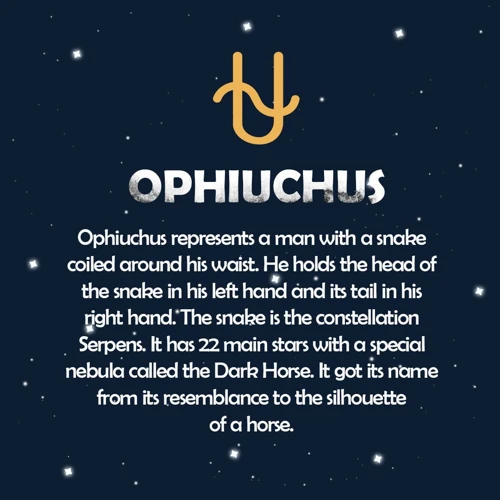
Ophiuchus is not a name commonly heard when discussing the zodiac, but it holds a significant place in astrological lore. Represented by the image of a serpent bearer, this constellation is located in the southern sky and lies between Scorpio and Sagittarius. To understand the significance of Ophiuchus, we must delve into its mythology and astrological implications. In Greek mythology, Ophiuchus is associated with the healer Asclepius who possessed the ability to resurrect the dead. This connection to healing and transformation has led some to view Ophiuchus as a symbol of rebirth and regeneration. Astrologically, Ophiuchus is said to possess traits such as wisdom, intuition, and a deep understanding of spirituality. Individuals born under this sign are believed to have a strong sense of justice and a desire to help others. To explore the influence of Ophiuchus in astrology further, one can examine how its romantic matches differ from those of the other zodiac signs. Additionally, analyzing the strengths and weaknesses of Ophiuchus individuals can shed light on how this sign connects to self-awareness and personal growth.
The Mythology
The mythology surrounding Ophiuchus is rooted in ancient Greek legends. In these tales, Ophiuchus is often associated with the mythical figure Asclepius, a skilled healer and practitioner of medicine. According to one legend, Asclepius possessed the power to resurrect the dead, a feat that angered Hades, the god of the underworld. In response, Zeus, the king of the gods, struck down Asclepius with a thunderbolt. However, in recognition of his healing abilities, Zeus immortalized Asclepius by placing him in the heavens as the constellation Ophiuchus. Ophiuchus is often depicted as a man holding a serpent, which is believed to symbolize the staff of Asclepius, entwined by a snake. This imagery represents the balance between life and death, as well as the transformative power of healing and regeneration. The mythological connection between Ophiuchus and healing continues to influence its astrological interpretation, where the sign is associated with qualities such as wisdom, intuition, and the desire to bring about positive change. Further exploration of the deities and influences associated with Ophiuchus can provide deeper insights into the astrological significance of this unique zodiac sign.
The Astrological Significance
of Ophiuchus sparks curiosity and intrigue among astrologers and enthusiasts. While Ophiuchus is not officially recognized as a zodiac sign in Western astrology, its presence raises questions about its potential impact on the astrological landscape. Ophiuchus is associated with a range of characteristics that add depth to the astrological system. Individuals born under Ophiuchus are said to possess a natural inclination towards healing and transformation. They are often seen as deep thinkers with a strong sense of intuition and spirituality. Ophiuchus is rumored to have a unique perspective that blends the traits of neighboring signs, Scorpio and Sagittarius, so they may exhibit qualities such as passion, resourcefulness, adaptability, and optimism. However, due to its unofficial status in Western astrology, the astrological significance of Ophiuchus remains a subject of debate and interpretation. While some argue for its inclusion in the zodiac system, others adhere to the traditional twelve signs and dismiss Ophiuchus as an anomaly. To fully grasp the astrological significance of Ophiuchus, it is important to explore its mythological roots and understand the influence of its neighboring signs.
The 13th Zodiac Sign Controversy
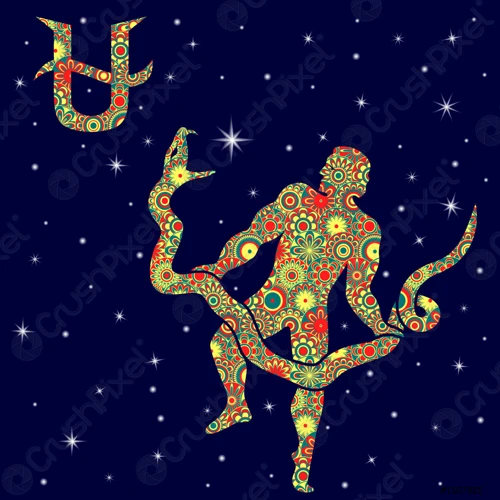
has ignited passionate discussions within the astrological community, challenging long-held beliefs and practices. The controversy surrounding Ophiuchus stems from a few key factors. Firstly, its discovery has caused a shift in the traditional understanding of the zodiac. Historically, the zodiac consisted of twelve signs, each corresponding to a specific range of dates. However, with the inclusion of Ophiuchus, the zodiac is now expanded to thirteen signs. This expansion has led to debates about the accuracy and validity of astrology.
Another point of contention is the alignment of Ophiuchus with the sidereal zodiac, which follows the actual positions of the constellations in the sky. While the tropical zodiac, commonly used in Western astrology, is based on the seasons rather than the constellations. This misalignment has sparked discussions about which system should be considered more accurate and reliable.
Expanding the zodiac to include Ophiuchus raises questions about the impact on chart interpretation. Astrologers have spent years honing their skills and techniques using the traditional twelve signs, so the introduction of a new sign can significantly alter their approach. Some argue that including Ophiuchus allows for a more nuanced and accurate understanding of individuals’ astrological profiles. On the other hand, skeptics view it as pseudoscience and a dilution of the traditional zodiac’s integrity.
To dive deeper into the influence of Ophiuchus in astrology, one can explore its mythological connections and its potential impact on romantic matches. Additionally, analyzing the strengths and weaknesses of Ophiuchus individuals can shed light on how this sign connects to self-awareness and personal growth. With varying perspectives and heated debates, the controversy surrounding the 13th zodiac sign continues to captivate astrologers and astrological enthusiasts alike.
The Discovery of Ophiuchus
Ophiuchus may seem like a relatively unknown constellation in popular consciousness, but its discovery dates back to ancient times. The exact origin of its recognition as a zodiac sign is debatable, as different civilizations have varying accounts. In ancient Greece, Ophiuchus was associated with the healer Asclepius, as mentioned earlier, who played a significant role in Greek mythology. However, the inclusion of Ophiuchus as a zodiac sign is more recent. In the 1970s, astronomer Dr. Parke Kunkle revived the discussion of Ophiuchus as the 13th zodiac sign. He pointed out that the Earth’s alignment had changed over time, resulting in a shift in the dates associated with the zodiac signs. This sparked controversy and reignited interest in Ophiuchus among astrologers and the general public. While some embraced the addition of Ophiuchus, others vehemently opposed the idea, citing tradition and the 12-sign system’s long-standing astrological associations. To explore Ophiuchus’s influence on astrology in more detail, refer to the analysis of strengths and weaknesses of Ophiuchus individuals, which provides insights into how this sign may impact chart interpretation and personal growth.
Alignment with the Sidereal Zodiac
The alignment of Ophiuchus with the Sidereal Zodiac is a crucial aspect of the controversy surrounding this 13th zodiac sign. Unlike the commonly known Tropical Zodiac, which is based on the position of the Sun relative to the Earth, the Sidereal Zodiac takes into account the actual positions of the constellations in the sky. In this system, Ophiuchus falls within the zodiac belt, overlapping with the dates traditionally assigned to Scorpio and Sagittarius in the Tropical Zodiac. Some argue that this alignment validates the inclusion of Ophiuchus as a recognized zodiac sign, as it aligns with the constellations as they appear in the night sky. However, critics contend that the Tropical Zodiac, being more focused on the seasonal changes and the Sun’s position, carries more significance in the practice of astrology. This debate raises questions about the accuracy and interpretation of astrological charts, and whether the alignment with the Sidereal Zodiac brings increased precision or veers into the territory of pseudoscience. Understanding the impact of the Sidereal Zodiac on Ophiuchus requires considering different perspectives and approaches within the realm of astrology. It is worth exploring how the influence of Ophiuchus deities, like Asclepius, may further shape its astrological significance.
Expansion of the Zodiac
has been a topic of contention and fascination in the astrological community. Traditionally, the zodiac has consisted of 12 signs, each representing a specific period of the year. However, the inclusion of Ophiuchus as the 13th zodiac sign challenges this long-standing belief. The controversy arises from the idea that the zodiac should reflect the actual constellation placements in the sky. Proponents of expanding the zodiac argue that Ophiuchus should be recognized because it falls along the ecliptic, the path that the Sun appears to travel throughout the year. They argue that this expansion would enhance the accuracy and precision of astrological readings. However, skeptics view the inclusion of Ophiuchus as unnecessary and claim that it dilutes the integrity of traditional astrology. They argue that maintaining the original 12 zodiac signs provides consistency and a solid foundation for chart interpretation. Despite the ongoing debate, Ophiuchus has gained popularity and is now being explored in terms of its influence on romantic matches, adding another layer to the discussion of expanding the zodiac.
Arguments For and Against Ophiuchus
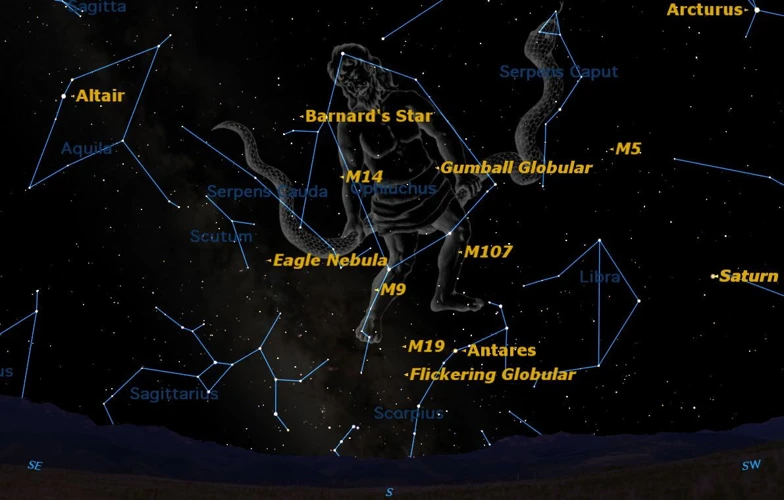
Arguments for and against Ophiuchus have sparked passionate debates within the astrological community. Those in favor of including Ophiuchus as the 13th zodiac sign argue that it brings increased accuracy to astrological readings. They believe that adding Ophiuchus provides a more comprehensive representation of the celestial influences on individuals, allowing for a more nuanced interpretation of their personality traits and life experiences. Proponents also highlight Ophiuchus’ strong association with healing and spirituality, emphasizing its potential to enhance astrological insights in these areas. On the other hand, critics argue that Ophiuchus is mere pseudoscience, lacking empirical evidence and contradicting the traditional Western zodiac system. They contend that the inclusion of Ophiuchus disrupts the established framework of astrology and creates confusion among both practitioners and enthusiasts. Additionally, adherents of the traditional zodiac raise concerns about the potential dilution of their sign’s significance and the impact on chart interpretation when Ophiuchus is taken into account. Whether Ophiuchus should be embraced as a valuable addition or dismissed as an unnecessary disruption remains a subject of ongoing controversy and discussion within the astrology community. To further explore the influence and role of Ophiuchus, one can examine its connection to mythological deities and its impact on astrological readings.
Increased Accuracy or Pseudoscience?
The debate surrounding Ophiuchus and its inclusion as the 13th zodiac sign raises questions about increased accuracy or pseudoscience in astrology. Some argue that adding Ophiuchus provides a more precise alignment of the zodiac with the actual positions of the constellations in the sky. They believe that incorporating Ophiuchus allows for a more accurate interpretation of an individual’s astrological chart, providing deeper insights into their personality traits and life path. Those in favor of Ophiuchus argue that it brings a fresh perspective and expands the possibilities for understanding the complexities of human nature. On the other hand, skeptics view the inclusion of Ophiuchus as pseudoscience, arguing that it disrupts the longstanding traditions and established interpretations of astrology. They contend that astrology should adhere to the original 12 zodiac signs and dismiss Ophiuchus as an unnecessary addition. While astrology as a whole is often regarded as a pseudoscience by critics, supporters of Ophiuchus assert that its inclusion adds depth and complexity to the practice. Ultimately, the debate over the increased accuracy or pseudoscience of Ophiuchus lingers in the astrological community, with no clear consensus in sight.
Impact on Chart Interpretation
The inclusion of Ophiuchus as a 13th zodiac sign has raised questions about how it affects the interpretation of astrological birth charts. Traditional astrology relies on the twelve zodiac signs and the various planetary placements to provide insight into an individual’s personality, strengths, and challenges. With the introduction of Ophiuchus, astrologers must navigate the complexities of incorporating this additional sign into their interpretations. One potential impact is the shifting of planetary placements within the chart. For example, someone who previously identified as a Scorpio may now find themselves classified as an Ophiuchus, altering the interpretation of their entire chart. This change could result in different insights about personality traits, compatibility with others, and life’s purpose. Understanding how Ophiuchus interacts with the other signs and planets requires further exploration. For those who are passionate about astrology and seek a more in-depth understanding of the influence of Ophiuchus, delving into the mythology and deities associated with Ophiuchus can provide invaluable insights. By examining the unique characteristics and influences attributed to Ophiuchus, astrologers can refine their interpretations and offer a more nuanced analysis to individuals seeking astrological guidance.
Traditional Zodiac Adherence
When it comes to the controversy surrounding Ophiuchus and its inclusion as a 13th zodiac sign, one of the primary arguments against it is the adherence to the traditional zodiac system. For centuries, the twelve zodiac signs have been widely accepted and used in astrology, with each sign holding specific characteristics and interpretations. The addition of Ophiuchus challenges the established system and raises concerns among traditionalists who believe in the significance and accuracy of the original twelve signs.
Those who adhere to the traditional zodiac argue that changing or expanding the system dilutes its integrity and undermines the longstanding beliefs and interpretations associated with each sign. They believe that the inclusion of Ophiuchus would disrupt the balance and coherence of the zodiac, potentially leading to confusion and inconsistency in astrological readings and chart interpretations.
Some proponents of the traditional zodiac argue that the exclusion of Ophiuchus is justified by the lack of historical and cultural prominence. While Ophiuchus does have its mythological associations and astrological significance, it has not been widely recognized or incorporated into traditional astrological practices. Thus, traditionalists argue that the zodiac should remain confined to the twelve signs that have been recognized and studied for centuries.
However, it is important to note that astrology, like any other field of study, evolves and adapts over time. While the traditional adherence to the zodiac is valued by many, there is also room for exploration and expansion. The inclusion of Ophiuchus as a 13th zodiac sign may offer new insights and perspectives in astrological readings, providing a broader understanding of personalities, traits, and life paths.
Ultimately, the debate over traditional zodiac adherence is a complex one, balancing the preservation of established systems with the potential for growth and evolution in the field of astrology.
Misconceptions and Clarifications
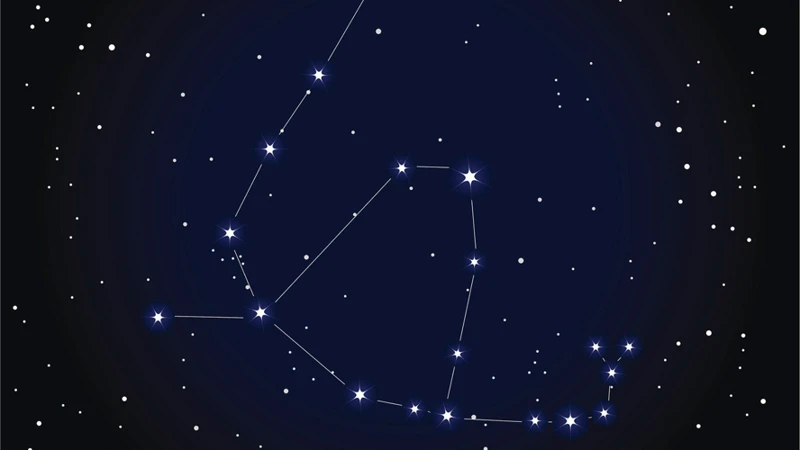
Misinformation and misunderstandings often surround the topic of Ophiuchus and its place within astrology. One common misconception is the idea that Ophiuchus is a new zodiac sign that has recently been discovered. However, Ophiuchus has been known since ancient times and has long been acknowledged as a constellation. It is the interpretation and inclusion of Ophiuchus as a zodiac sign that has stirred controversy. Another misconception relates to the shifting of astrological dates. Critics argue that introducing Ophiuchus would require a realignment of the zodiac calendar, pushing the dates of all other signs forward. However, proponents of Ophiuchus argue that it can exist alongside the traditional zodiac without altering the existing sign dates. Integration into mainstream astrology remains a point of debate, with some astrologers incorporating Ophiuchus into their readings and others maintaining allegiance to the traditional zodiac. To gain a fuller understanding of Ophiuchus and its influence on astrology, we must separate fact from fiction and explore the various perspectives surrounding this celestial enigma. For a more detailed exploration of Ophiuchus’ influence and astrological significance, refer to our article on Ophiuchus in Astrology.
Ophiuchus as a New Zodiac Sign
has sparked intense debate and controversy within the astrology community. Some argue that Ophiuchus should be recognized as the 13th zodiac sign, while others vehemently oppose this idea. Those in favor of incorporating Ophiuchus believe that it brings increased accuracy and depth to astrological interpretations. They argue that by including Ophiuchus, the zodiac would align more closely with the actual positions of the constellations in the sky. This would allow for a more precise reading of an individual’s astrological profile. On the other hand, skeptics dismiss Ophiuchus as a new zodiac sign, viewing it as pseudoscience and an unnecessary addition. They argue that changing the established zodiac system would cause confusion and undermine the longstanding traditions of astrology. This controversial topic has significant implications for chart interpretation and astrological predictions. To explore Ophiuchus’ romantic matches and how they differ from other zodiac signs, click here.
Shifting Astrological Dates
The inclusion of Ophiuchus has sparked discussions about the potential need to shift the astrological dates associated with the zodiac signs. Currently, the dates are based on the tropical zodiac, which aligns with the Earth’s seasons. However, if Ophiuchus were to be recognized as the 13th zodiac sign, it would necessitate a reevaluation of the dates attributed to each sign. This would mean that individuals who previously identified with a certain sign may find themselves redefining their astrological identity. For example, if your birthday fell between November 30th and December 17th, you may now fall under the domain of Ophiuchus instead of Sagittarius. The idea of shifting astrological dates raises questions about the accuracy and consistency of astrology. While some argue that incorporating Ophiuchus would enhance the precision of astrology, others believe it would disrupt the longstanding traditions and interpretations associated with the zodiac signs. Ultimately, the possibility of shifting astrological dates adds another layer of complexity to the debate surrounding Ophiuchus and its implications on astrological practice. For more information on how romantic matches may differ for Ophiuchus individuals, you can refer to the romantic matches of Ophiuchus.
Integration into Mainstream Astrology
Integration into mainstream astrology is a topic that continues to spark interest and debate among astrologers and enthusiasts. The inclusion of Ophiuchus as the 13th zodiac sign has raised questions about how it fits within the existing astrological framework. Some argue that Ophiuchus should be embraced and integrated into mainstream astrology, citing the need for a more accurate and inclusive system. They believe that acknowledging Ophiuchus expands our understanding of the celestial influences on our lives and allows for a more nuanced interpretation of birth charts. Proponents of this integration argue that astrology is an evolving and dynamic field, and the addition of Ophiuchus reflects this evolutionary process. However, there are also those who resist the integration of Ophiuchus into mainstream astrology. They argue that the traditional zodiac, consisting of 12 signs, has been widely accepted and followed for centuries. They raise concerns about the confusion and disruption that may arise from introducing a new sign. Additionally, they maintain that the traditional zodiac provides a solid foundation for understanding personality traits and compatibility, and that adding Ophiuchus could potentially dilute the accuracy of astrological interpretations. As the debate continues, the future of Ophiuchus in mainstream astrology remains uncertain, leaving astrologers and enthusiasts to ponder whether it will eventually find its place or remain on the fringes of astrological discourse.
Conclusion
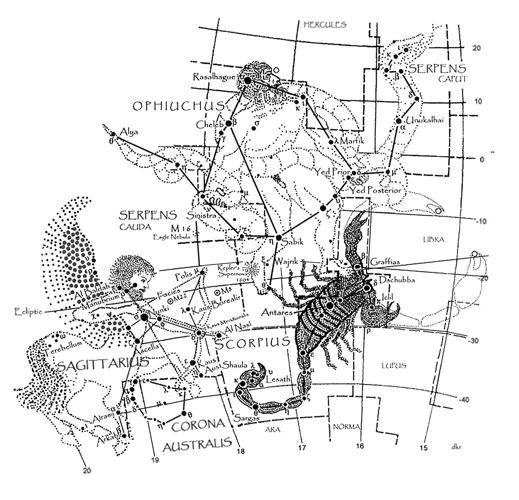
In conclusion, the controversy surrounding Ophiuchus and the 13th zodiac sign continues to captivate the astrological community. While its discovery may have sparked debates and raised questions about the accuracy and validity of astrology, it also presents an opportunity for further exploration and expansion of our understanding of the zodiac. Whether Ophiuchus is seen as a valuable addition to astrology or dismissed as pseudoscience, it is undeniable that its mythology and astrological significance have captured the curiosity and imagination of many. As we continue to navigate the realm of astrology, it is important to approach these debates with an open mind and a willingness to explore new possibilities. Perhaps in the future, Ophiuchus will find its place in mainstream astrology and enhance our understanding of ourselves and the stars above.
Frequently Asked Questions
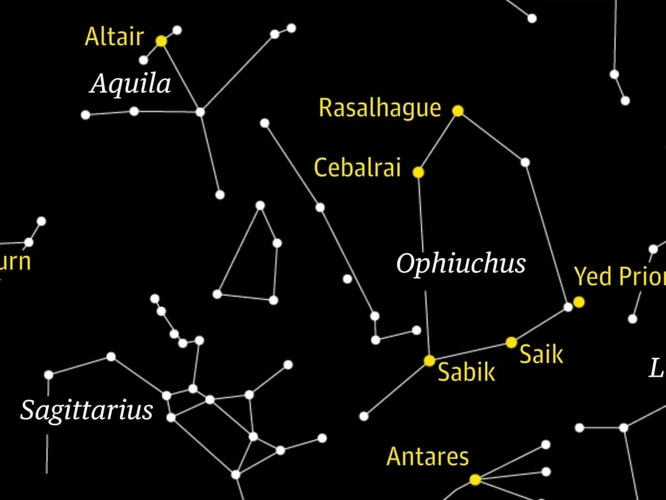
What is the origin of the name “Ophiuchus”?
The name “Ophiuchus” is derived from the Greek words “ophis,” meaning serpent, and “oukhos,” meaning holder or bearer. It refers to the mythological figure depicted as holding a serpent, symbolizing healing and wisdom.
Is Ophiuchus considered an official zodiac sign?
While Ophiuchus is recognized as a constellation, it is not officially considered one of the 12 zodiac signs used in Western astrology. Its inclusion in the zodiac is a topic of debate and controversy.
Does Ophiuchus have specific personality traits assigned to it?
Astrologically, Ophiuchus is believed to possess traits such as wisdom, intuition, and a deep understanding of spirituality. Those born under this sign may exhibit a strong sense of justice and a desire to help others.
What are the romantic matches for Ophiuchus individuals?
There is limited information available on Ophiuchus’ romantic matches, as it is not widely recognized as an official zodiac sign. However, some astrologers suggest that Ophiuchus individuals may be compatible with those who share their passion for healing, wisdom, and spiritual growth.
How does Ophiuchus impact chart interpretation?
The inclusion of Ophiuchus in astrological charts can potentially shift the dynamics and interpretations of an individual’s birth chart. It may provide additional insights into one’s personality traits, strengths, and challenges, offering a more comprehensive understanding of their astrological makeup.
Why is Ophiuchus not included in mainstream astrology?
Ophiuchus is not included in mainstream astrology primarily because the traditional system is based on the 12 zodiac signs that align with the twelve 30-degree segments of the ecliptic. The addition of Ophiuchus would require a significant reconfiguration of the astrological framework.
Will Ophiuchus change the dates of other zodiac signs?
The inclusion of Ophiuchus does not necessarily change the dates of the other zodiac signs. The traditional dates for each sign are based on the sun’s apparent path through the 12 zodiac constellations, whereas Ophiuchus is positioned between Scorpio and Sagittarius.
Is Ophiuchus gaining acceptance among astrologers?
Ophiuchus remains a topic of debate among astrologers. While some embrace its inclusion, citing a need for expanded accuracy and exploration, others firmly adhere to the traditional system and do not recognize Ophiuchus as a valid zodiac sign.
Can Ophiuchus be integrated into mainstream astrology?
The integration of Ophiuchus into mainstream astrology would require significant changes and adaptations to the existing system. It would involve redefining the overall structure of the zodiac and the interpretation of birth charts, which may take time and consensus among astrologers.
Is there scientific evidence supporting Ophiuchus’ influence?
Astrology, including the inclusion of Ophiuchus, is not considered a scientifically proven discipline. It is primarily based on interpretations, beliefs, and subjective observations. There is no scientific evidence supporting or disproving Ophiuchus’ influence.
References
- Is Ophiuchus the 13th Zodiac Sign?
- Ophiuchus – the 13th Zodiac Constellation
- Zodiac Update: Are You Star Signs Changing?
Frequently Asked Questions

1. What is the significance of Ophiuchus in astrology?
Ophiuchus is a constellation located on the celestial equator. It is often associated with healing and wisdom, and some astrologers believe that it should be recognized as the 13th zodiac sign.
2. What is the mythology behind Ophiuchus?
In Greek mythology, Ophiuchus is associated with the demigod Asclepius, who was known for his healing abilities. He was often depicted holding a serpent, which became a symbol of transformation and healing.
3. How was Ophiuchus discovered?
Ophiuchus has been known since ancient times and was included in Ptolemy’s list of 48 constellations. However, it is not considered one of the traditional zodiac signs in Western astrology.
4. How does Ophiuchus align with the Sidereal Zodiac?
In sidereal astrology, which is based on the actual positions of the constellations, Ophiuchus is recognized as a zodiac sign. It falls between Scorpio and Sagittarius and is said to have traits similar to both signs.
5. Why is there controversy surrounding the inclusion of Ophiuchus as a zodiac sign?
The controversy arises from the fact that Ophiuchus is not part of the traditional Western astrology system, which is based on the tropical zodiac that divides the year into 12 equal parts.
6. Does the inclusion of Ophiuchus increase the accuracy of astrology?
Some astrologers argue that recognizing Ophiuchus as a zodiac sign can enhance the accuracy of chart interpretation by accounting for the presence of an additional celestial influence. However, this viewpoint is not universally accepted.
7. How does Ophiuchus impact chart interpretation?
If Ophiuchus is included in the zodiac, it would alter the positions of the other zodiac signs in a birth chart. This could potentially change the overall interpretation of a person’s astrological profile.
8. Why do some astrologers adhere strictly to the traditional zodiac without including Ophiuchus?
Many astrologers believe in the importance of maintaining the integrity of the established astrological system. They argue that adding Ophiuchus would disrupt the balance and consistency of the current zodiac framework.
9. Is Ophiuchus considered a new zodiac sign?
While Ophiuchus may be new to some individuals, it has been recognized as a constellation for centuries. However, its inclusion as a zodiac sign in mainstream astrology remains a topic of debate.
10. Will the inclusion of Ophiuchus change astrological dates?
If Ophiuchus were to be officially recognized as a zodiac sign, it would affect the dates associated with each zodiac sign. However, such a change would require a significant shift in the astrological community and its practices.


